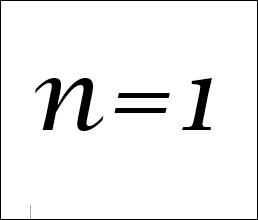Summary
Flaxseed oil did not affect my reaction time or accuracy in a self-administered, computerized test.
Introduction
Seth Roberts had previously reported that consuming flaxseed oil would improve his balance and his reaction time (although, interestingly enough, it also caused a worsening in his error rate). Seth argued that reaction time and balance are good indicators of overall brain function, and perhaps of health in general. Aside from self-experimentation, much conventional research has also focused on the multiple health benefits of omega-3 fatty acids, which are the putative active ingredient in flaxseed oil.
I attempted to replicate some of Seth’s findings, using my own reaction-time test (as described here). I used coconut oil as a control, since the Genomera Buttermind experiment suggested that coconut oil would not have a beneficial effect on reaction time.
Methods
My study consisted of three phases:
- Baseline phase: Ten daily doses of one heaping tablespoon of semi-solid coconut oil. No flaxseed oil.
- Experiment phase: Fifteen daily doses of three tablespoons of flaxseed oil. No coconut oil.
- Return to baseline phase: Fifteen daily doses of one heaping tablespoon of coconut oil. No flaxseed oil.
In each case, the oil was consumed in single dose, with water, around 1:30 PM. The coconut oil was Nutiva Virgin Organic Oil. The flaxseed oil was Barlean’s Fresh Flax Oil (without lignans).
During each of these phases, I tested my reaction time three times each day: The first test was done in the morning, about two hours before taking the oil. The second test was performed approximately two hours after the oil. I called these tests the “mid-afternoon sessions”. The third test was done before going to bed, usually around 11:30 PM (which I called the “night sessions”). The reason I used less coconut oil than flaxseed oil was due to the fact that the coconut oil tended to upset my stomach.
Results
The following two graphs show the main results of the study. The blue lines are linear regressions. I didn’t perform significance testing, both because it seemed unlikely that there would be any significant difference in either the reaction times or the number of mistakes, and also because I’m not confident in my skills at statistical analysis.
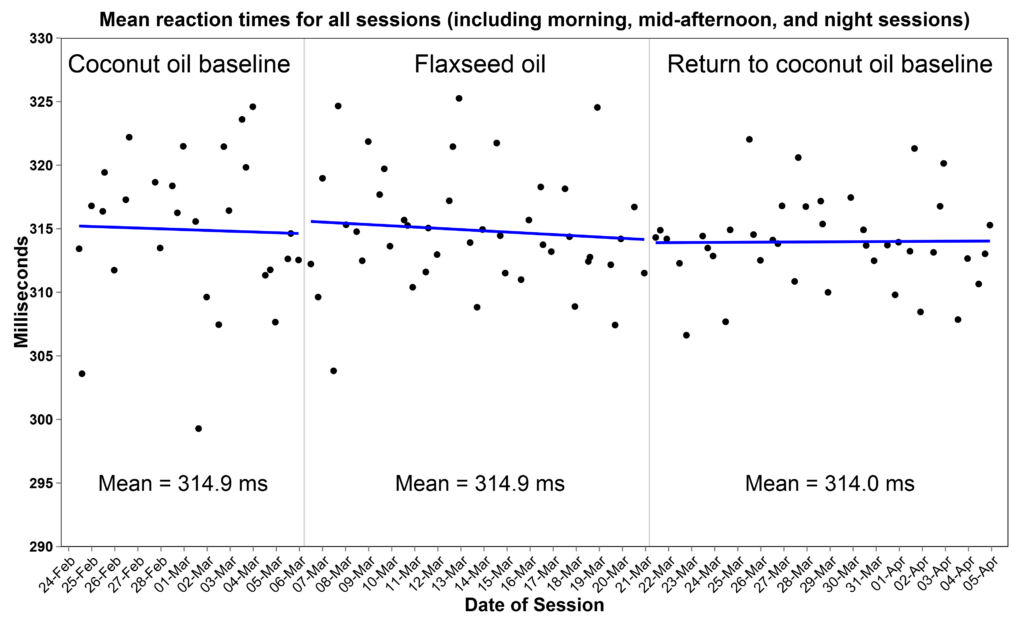

The following two graphs show the data without the morning tests. The morning tests preceded my ingestion of the oil, so if the effect of the flaxseed oil was short-lived, you might expect that the effect would be more pronounced if we look at only the mid-afternoon and night tests. However, there still doesn’t seem to be any benefit from the flaxseed oil. Note that the reduced number of data point leads to more “noise” in the signal. The slopes of the linear regressions are probably just artifactual, resulting from the relatively small number of data points.
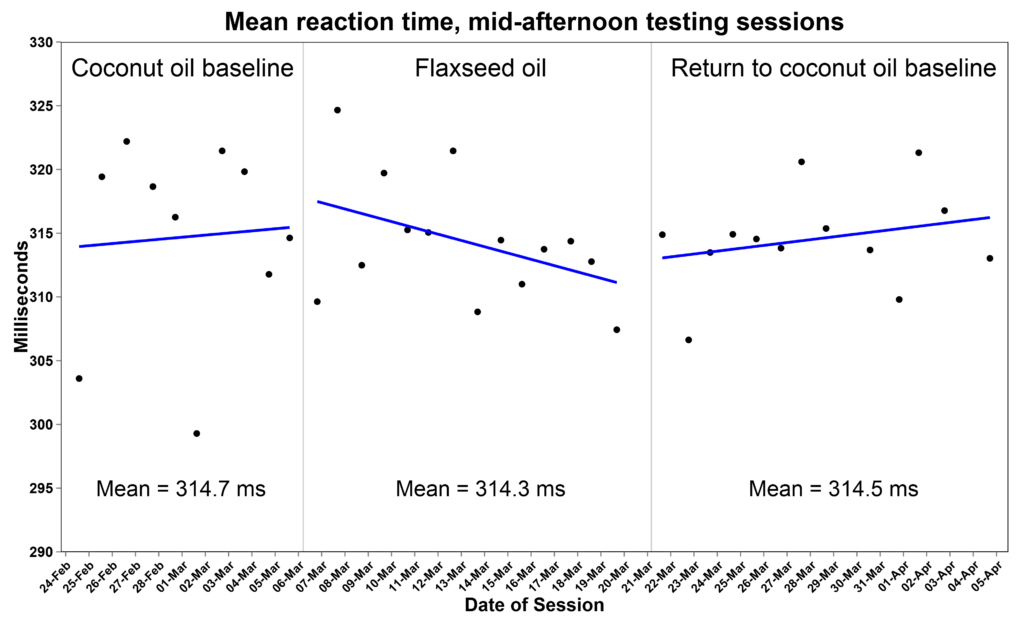
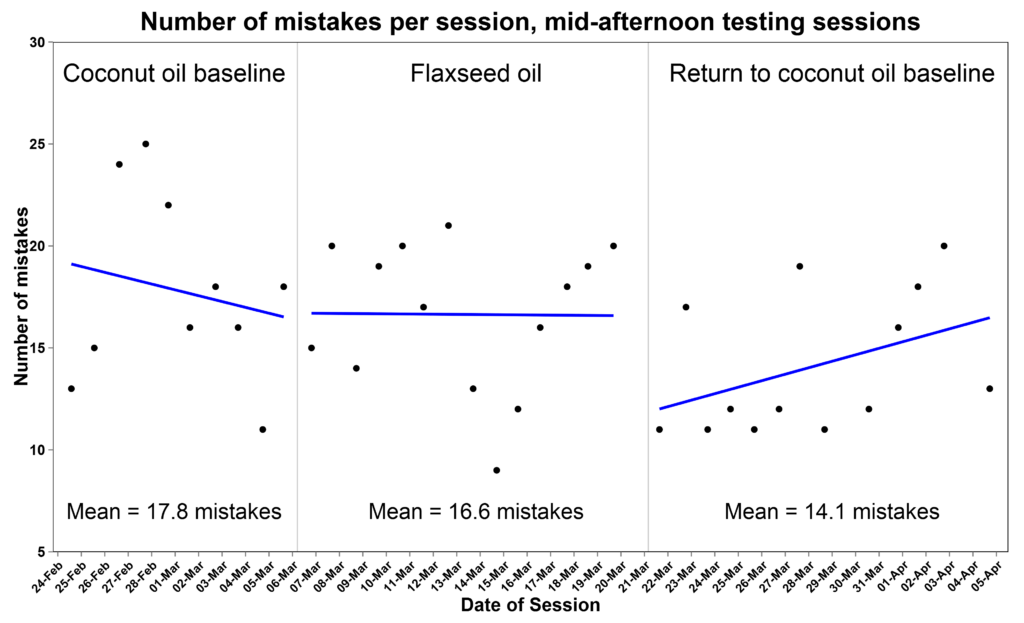
Discussion
My results do not support the hypothesis that consuming flaxseed oil improved my reaction time. My accuracy seemed unaffected, as well. However, there are a few other notable results.
A recurring criticism of self-experimentation focuses on the issue of expectation effects or placebo effects (see, for example some of the discussion in this paper). If I’m doing the experiment on myself, then I obviously know whether I’m conducting the reaction-time test under the experimental condition or the control condition. It’s reasonable to be concerned that this knowledge might affect my performance: Perhaps I’ll try just a bit harder when I’m in the experimental phase. In this current study, I was trying to replicate an earlier positive result, and I admit that I had some hopes that my data would confirm Seth’s work. And, in general, it’s more interesting to report some positive effect rather than the absence of an effect. Thus, if I had any bias or motivation here, it was in favor of doing “better” on the experimental phase of the study. The fact that my results were flat is encouraging to me, in the sense that I’m now a little less worried that my future experiments may result in expectation-derived spurious results.
Here are two other interesting results from this study. First of all, I found that my reaction time is not affected by time of day:
Time of Session Reaction Time (ms) Morning 314.3 Mid-afternoon 314.5 Night 314.9
I also found that my error rate is higher later in the day:
Time of Session Number of Mistakes Morning 15.1 Mid-afternoon 16.1 Night 18.8
Appendix
For the sake of completeness, I’ve included other graphs below, although these results do not add any substantial insights beyond those discussed above.
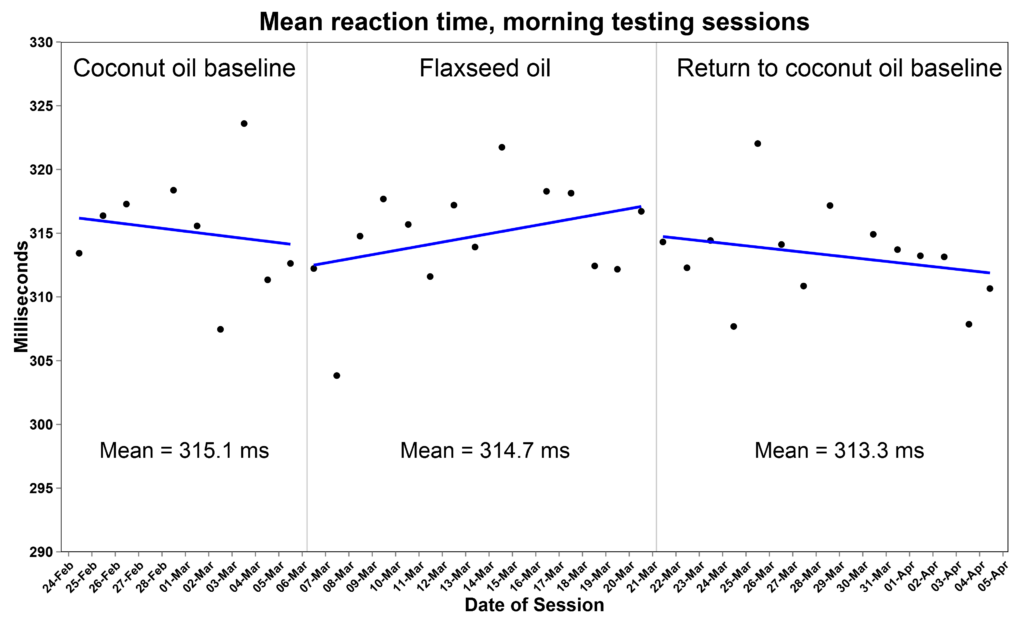
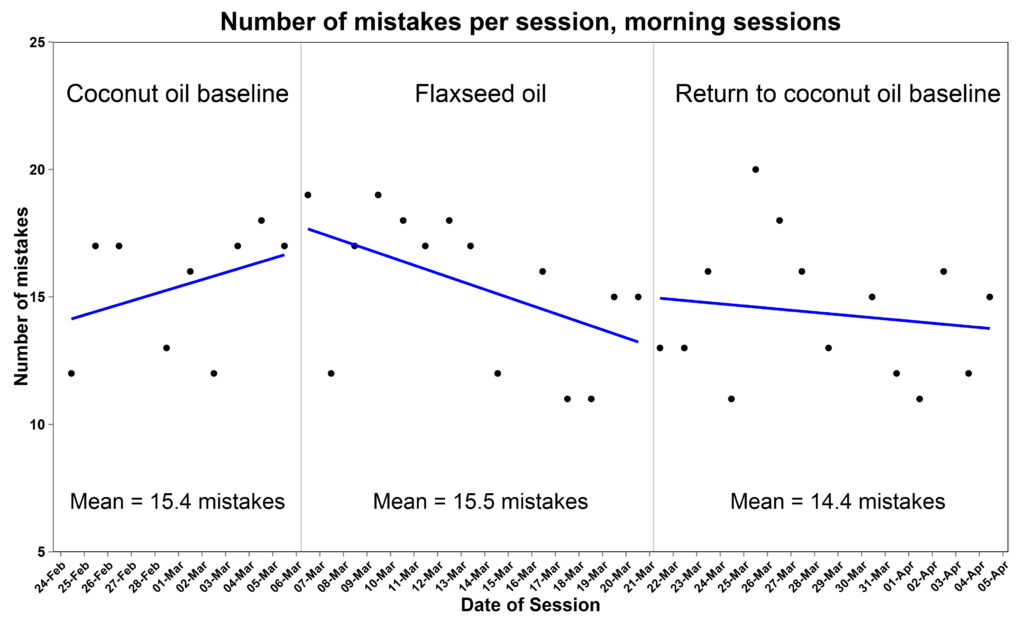


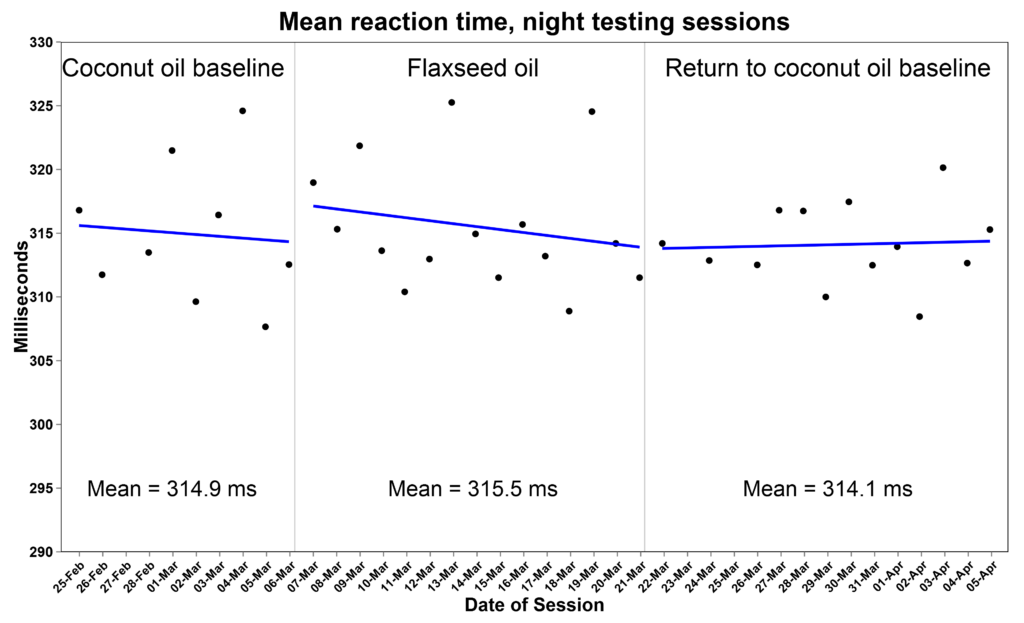
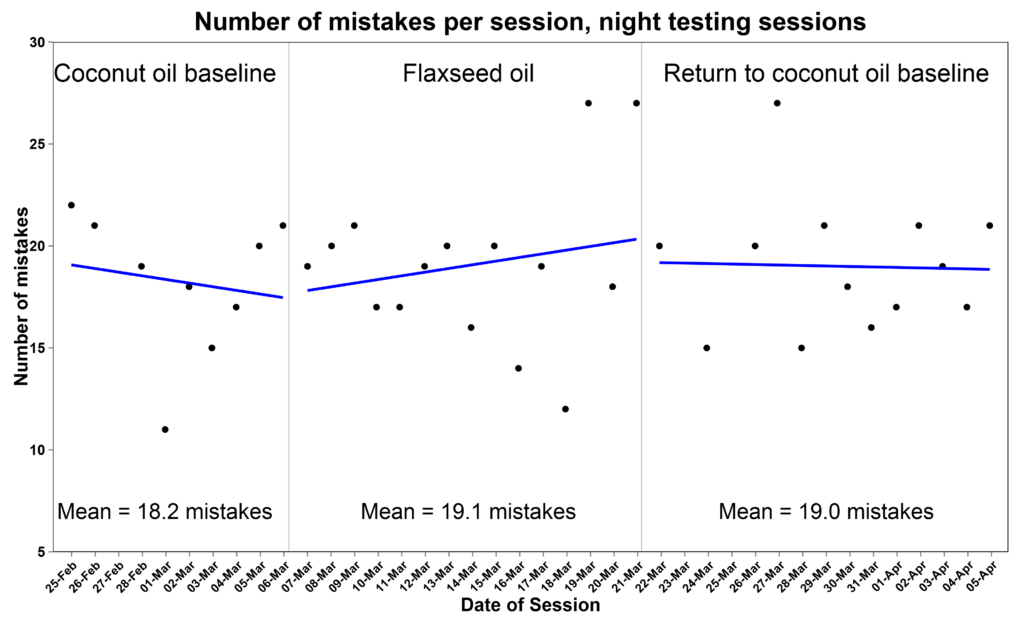
Readers are welcome to contact me at alexc@aya.yale.edu with any questions.
